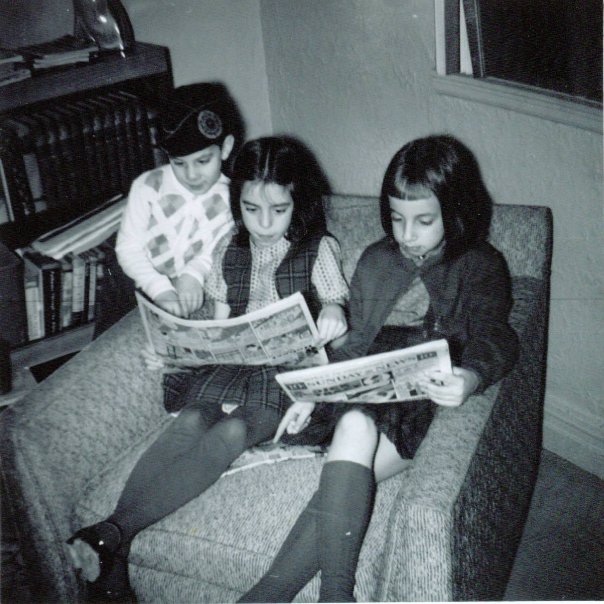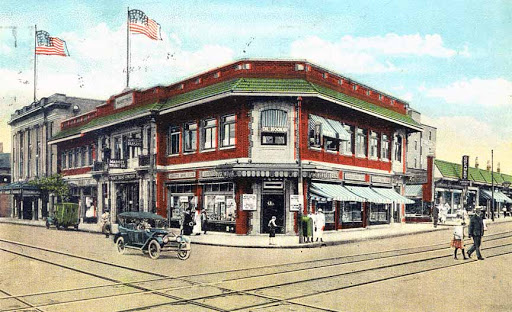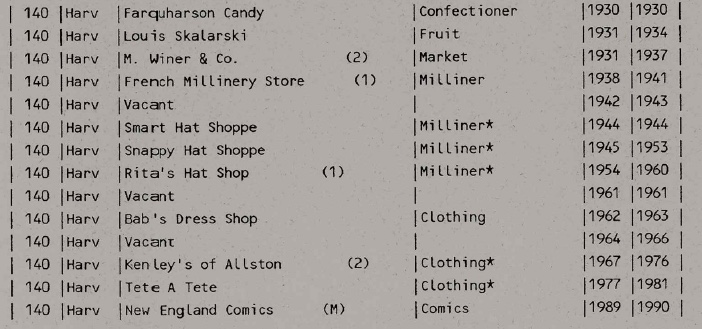New York Times columnist Charles M. Blow’s Thanksgiving Eve column “Thankful for Libraries” resonated with me, and not just because I’m a retired librarian who likes to see libraries given their due.
Blow described how his childhood home had a small, homemade hallway bookshelf filled with a set of encyclopedias and “random books that my mother grabbed when the high school library thinned its stacks at the end of each year.”
“They were all reference books,” wrote Blow. “That was what I imagined all books were. I read encyclopedia entries all the time. It was the modern-day equivalent of going down a rabbit hole while web surfing.”
That was my childhood experience, too, though my neighborhood in the Bronx was no doubt very different from his in the small town of Gibsland, Louisiana. (There may have been more people living in the four six-story apartment buildings on my small street, Undercliff Avenue, than there were in all of Gibsland.)
We, too, had a small bookshelf filled with a set of encyclopedias (the 1961 World Book) and other reference books: Bartlett’s Quotations, Roget’s Thesaurus, a pocket rhyming dictionary, and more. And I, too, would read encyclopedia articles, often grabbing a volume on my way to the bathroom or opening to a random page while eating breakfast at the kitchen table.

When the annual World Book yearbooks would arrive, I’d help put the tear-off stickers it came with in the appropriate places in the 1961 encyclopedia to indicate there were updates to articles.
My local branch of the New York Public Library was a tiny facility in the basement of one of the seven tall buildings of the Sedgwick Houses, a public housing project just up the hill from Undercliff Avenue. I’d also make visits every week or so to the larger Francis Martin branch with my father. When I was 15, I wanted to be a librarian when I grew up, though that would not happen until more than 20 years (and several other careers) later. .
But that love of reference books never went away. When a beloved great uncle, who was our family dentist, died in 1986 he left a small amount of money to his nieces and nephews. My father passed that money to me and my sisters under the condition that we spend it on something that reminded us of Uncle Max. Max was a lover of knowledge, and I spent my $1,200 on a 1987 set of the Encyclopedia Americana.
I was living in Boston by then, working for my dad’s small New York public relations firm after stints as a newspaper reporter and as a staffer in a group home for developmentally disabled adults. But I was still going down rabbit holes. One of those began with my curiosity about the history of the retail strip in the Boston neighborhood of Allston, where I rented an office on the second floor of a commercial building (above Riley’s Roast Beef and other stores).

I went to the Boston Public Library in Copley Square and found they had 60+ years of city directories in large, bound, red-covered volumes on a shelf in the microfilm room. (These, and others like them, didn’t become available online until much later.) I went back multiple times, copying the names of businesses into a notebook. Back in my apartment, I typed them into a file on the first computer I ever had.

That’s when it hit me: my 15-year-old self had it right. My true calling was as a librarian. I enrolled in the Master of Library Science program at Simmons College (now Simmons University) in 1990.
One of my first two classes that year was Allen Smith’s class on reference services. I still remember an early assignment: find the name of a Massachusetts woman who invented a machine for manufacturing flat-bottomed paper bags. You’ll find stories saying it was invented by a man, he told us, but find the woman who really invented it. And down the rabbit hole I went.
(I would encounter that woman, Margaret Knight, the holder of dozens of patents, again, down another rabbit hole, 30 years later.)
My first job after graduating from Simmons in 1992 was at the Brighton branch of the Boston Public Library. I met folks at the Brighton-Allston Historical Society and gave them a copy of my Allston research on floppy disk though they did not have a computer. (The floppy disk disappeared, but years later I found they still had a printout that I gave them.)
I worked at several job in several kinds of libraries in a rapidly changing field in my 29 years as a librarian before retiring as Head of Liaison and Instruction Services at the Boston University Libraries in June 2021. I spent much of my library career teaching undergraduates how to do research, including the art, the joy, and the value of going down rabbit holes.
My own rabbit hole explorations have long gone beyond my work as a librarian. I’ve been the volunteer head of the historical society in Brookline, Massachusetts, where I live, since 2009. (One of my current projects, an echo of my librarian origin story, involves documenting the history of the stores in Coolidge Corner, the town’s main commercial district.)
I’m also helping prolific author Paul Dickson with both a new edition of his Dickson’s Baseball Dictionary and a forthcoming World War II dictionary.
Print encyclopedias have largely given way to online versions, including the crowdsourced Wikipedia. I reluctantly tossed my parents’ 1961 set of the World Book Encyclopedia when my mother moved out of her apartment to assisted living in 2012. My 1987 Encyclopedia Americana went up to our attic not long after. But I have my own little bookshelf of specialized reference books — on history, language, architecture, baseball, and more — next to my desk, with more scattered around our house.
And I’ve been an active participant in Wikipedia, expanding, updating, correcting, and otherwise contributing to that popular successor to those venerable print encyclopedias. I’ve even created three Wikipedia biographies from scratch, documenting the lives and accomplishments of men and women I first “met” going down rabbit holes of my own.
So, here’s to libraries and reference sources of every kind, and to the resources, the services, the people, and — most of all — the spirit that captured Charles M. Blow and me long ago and continues to inform, intrigue, and inspire us, and others, today.
Nice article! I also remember debating whether to keep that old set of encyclopedias when mom moved out of the apartment. And I believe I have that copy of Roget’s Thesaurus.
But I don’t remember that you wanted to be a librarian as a teenager. Maybe because I wasn’t living at home then. And I don’t remember the money from Uncle Max. I wonder what I spent it on!
Here’s another rabbit hole to go down, if you haven’t already – who was Roget?
https://blog.pimsleur.com/2020/08/27/history-rogets-thesaurus/